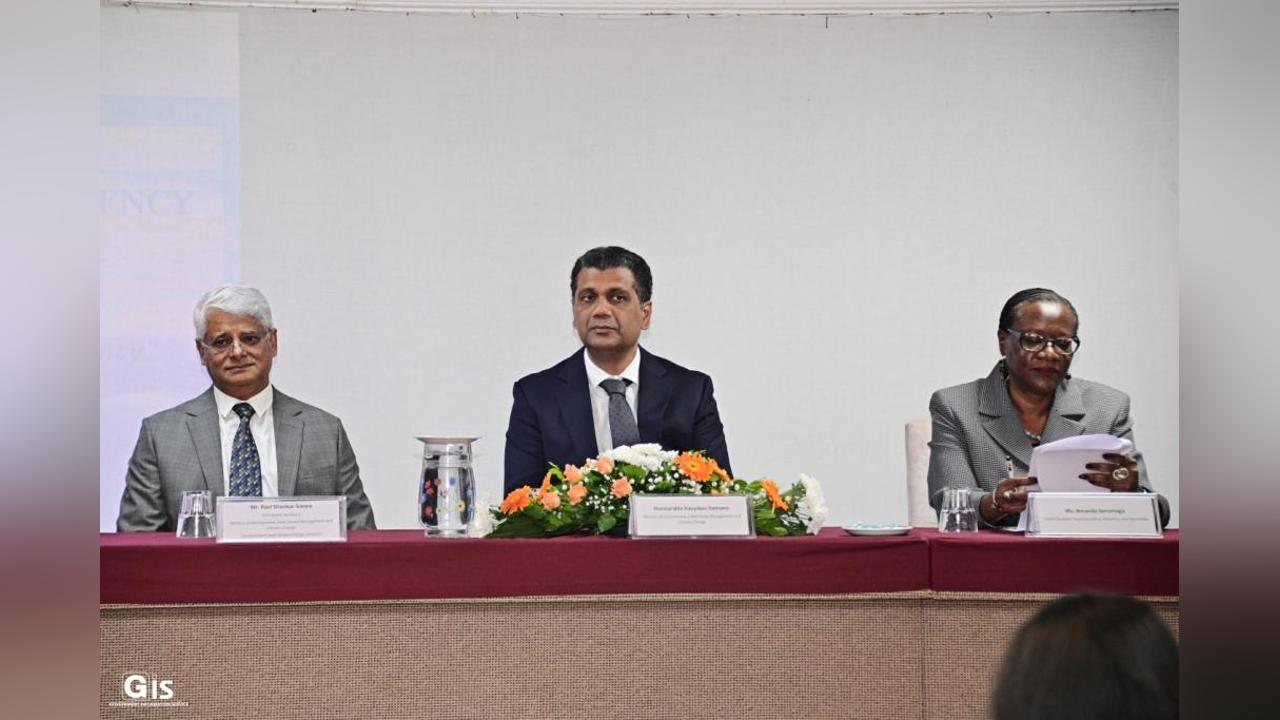
Africa-Press – Mauritius. A one-day Inception Workshop on Capacity Building Initiative for Transparency (CBIT) Project aimed at strengthening the National Greenhouse Gas Inventory of Mauritius and improve data collection, was launched, yesterday, in presence of the Minister of Environment, Solid Waste Management and Climate Change, Mr Kavydass Ramano, and the United Nations Development Programme (UNDP) Resident Representative, Ms Amanda Serumaga, at the Gold Crest Hotel in Quatre Bornes.
The project, funded by the Global Environment Facility (GEF), will address the lack of a global coordination platform for information sharing and knowledge management on the enhanced transparency framework, as defined by the article 13 of the Paris Agreement, adopted in 2015.
In his address, Minister Ramano, indicated that reporting on greenhouse gas emissions is a key obligation under the United Nations Framework Convention on Climate Change and hence the relevance of the CBIT project.
One of the main priorities, he stated, is to limit the global average temperature rise to well below 2°C above pre-industrial levels and pursue efforts to aim for 1.5°C.
He pointed out that the Agreement has also established an enhanced transparency framework to ensure that countries report their climate actions, greenhouse gas (GHG) emissions, and progress towards their Nationally Determined Contributions.
Developing countries and particularly Small Island Developing States (SIDS), he added, face significant challenges in terms of the institutional and technical capacities in implementing the enhanced transparency requirements and establishing national reporting systems.
Minister Ramano observed that presently, default values available at international or regional levels are used to calculate our GHG emissions. The CBIT project, he said, will thus assist countries for the preparation of the Biennial Transparency Reports (BRT).
It comprises four main components, namely improving accuracy; strengthening data collection and compilation process; mainstreaming GHG inventory to enhance transparency and support policy-making; and monitoring and evaluation.
He further highlighted the imperative to improve the accuracy of our National GHG Inventory to better reflect our emissions reduction given that Government has taken the commitment to reduce GHG emissions by 40% by 2030.
As per the Climate Change Act, he explained, relevant institutions are required to report on sectoral GHG emissions. It is therefore important to develop institutional capacities to achieve the targets set under the Paris Agreement, he added.
The Minister expressed gratitude to the GEF and UNDP for providing the financial and technical support for the CBIT project that will be crucial to review our NDC in 2025 and embark on the preparation of our first BTR.
As for Ms Serumaga, she underlined that climate change has a serious negative impact for developing countries and for SIDS adding that extreme weather conditions are affecting safety and health of citizens as well as economic development.
According to the World Risk Report of 2021, she pointed out, Mauritius ranks 51st among the most countries exposed to natural hazard. It is important to accelerate international collaboration to achieve the targets set for SDGs and realise the aspirations of the African Union Agenda 2063, she stressed, while reiterating the UNDP’s support to Mauritius.
For More News And Analysis About Mauritius Follow Africa-Press






